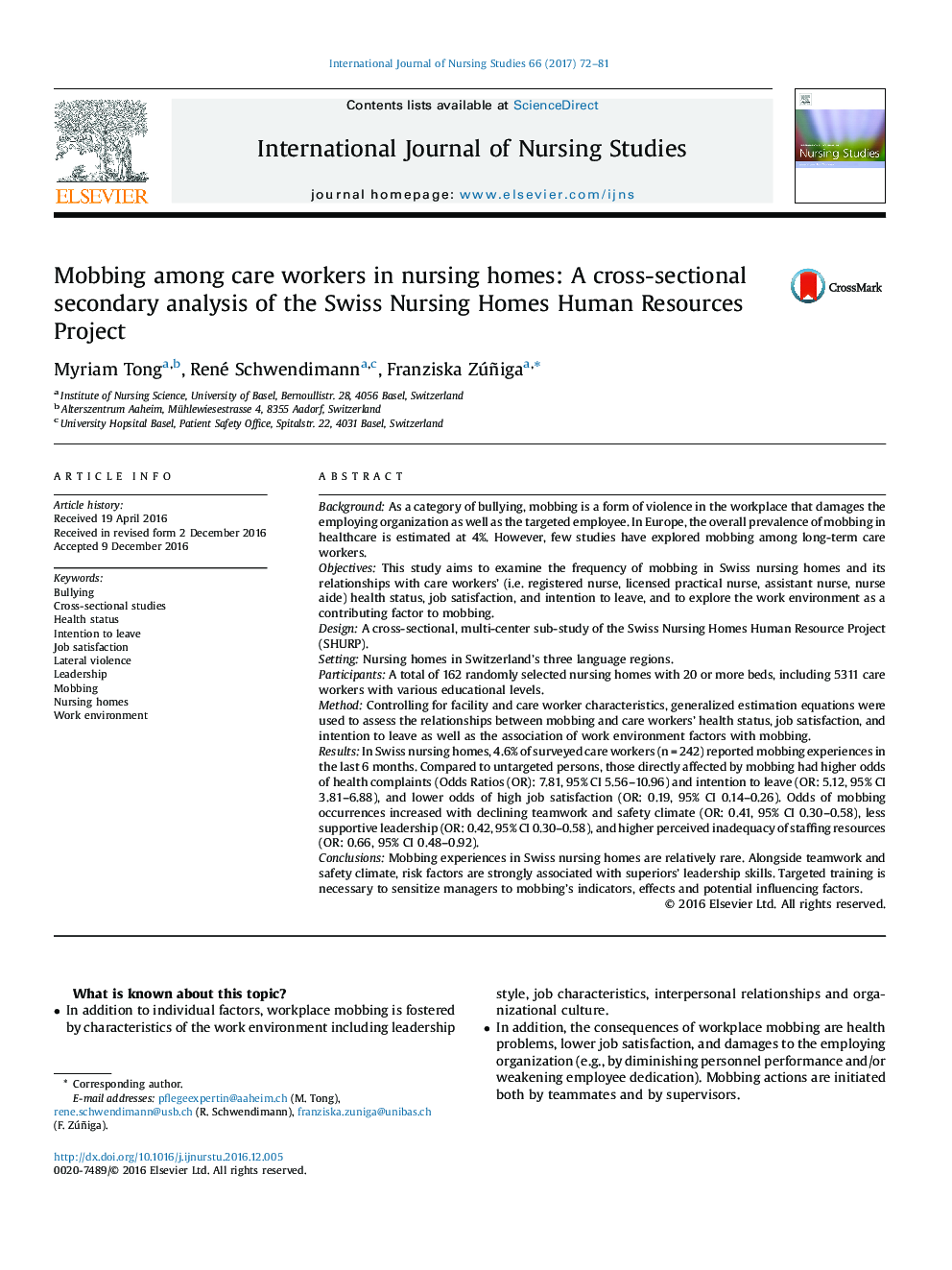| کد مقاله | کد نشریه | سال انتشار | مقاله انگلیسی | نسخه تمام متن |
|---|---|---|---|---|
| 5121146 | 1486503 | 2017 | 10 صفحه PDF | دانلود رایگان |
BackgroundAs a category of bullying, mobbing is a form of violence in the workplace that damages the employing organization as well as the targeted employee. In Europe, the overall prevalence of mobbing in healthcare is estimated at 4%. However, few studies have explored mobbing among long-term care workers.ObjectivesThis study aims to examine the frequency of mobbing in Swiss nursing homes and its relationships with care workers' (i.e. registered nurse, licensed practical nurse, assistant nurse, nurse aide) health status, job satisfaction, and intention to leave, and to explore the work environment as a contributing factor to mobbing.DesignA cross-sectional, multi-center sub-study of the Swiss Nursing Homes Human Resource Project (SHURP).SettingNursing homes in Switzerland's three language regions.ParticipantsA total of 162 randomly selected nursing homes with 20 or more beds, including 5311 care workers with various educational levels.MethodControlling for facility and care worker characteristics, generalized estimation equations were used to assess the relationships between mobbing and care workers' health status, job satisfaction, and intention to leave as well as the association of work environment factors with mobbing.ResultsIn Swiss nursing homes, 4.6% of surveyed care workers (n = 242) reported mobbing experiences in the last 6 months. Compared to untargeted persons, those directly affected by mobbing had higher odds of health complaints (Odds Ratios (OR): 7.81, 95% CI 5.56-10.96) and intention to leave (OR: 5.12, 95% CI 3.81-6.88), and lower odds of high job satisfaction (OR: 0.19, 95% CI 0.14-0.26). Odds of mobbing occurrences increased with declining teamwork and safety climate (OR: 0.41, 95% CI 0.30-0.58), less supportive leadership (OR: 0.42, 95% CI 0.30-0.58), and higher perceived inadequacy of staffing resources (OR: 0.66, 95% CI 0.48-0.92).ConclusionsMobbing experiences in Swiss nursing homes are relatively rare. Alongside teamwork and safety climate, risk factors are strongly associated with superiors' leadership skills. Targeted training is necessary to sensitize managers to mobbing's indicators, effects and potential influencing factors.
Journal: International Journal of Nursing Studies - Volume 66, January 2017, Pages 72-81
